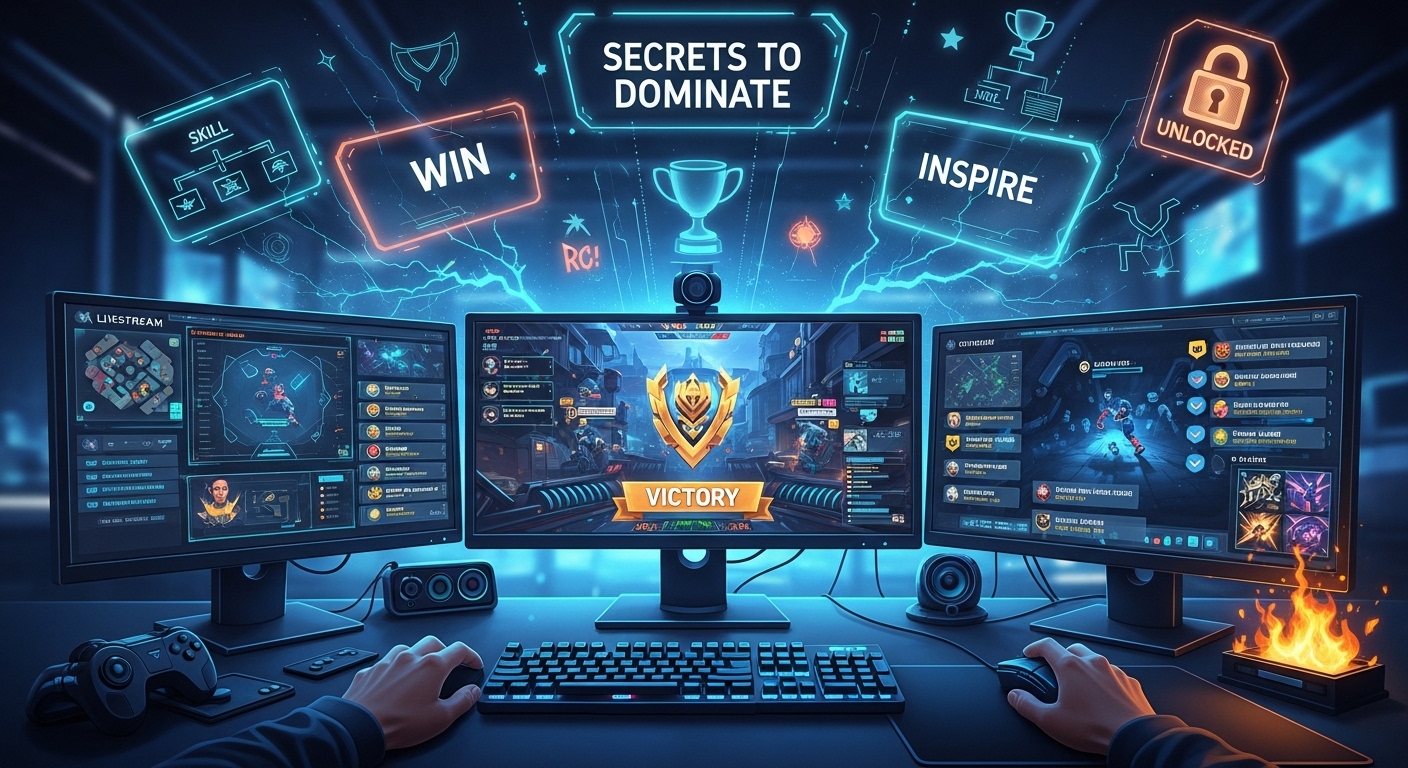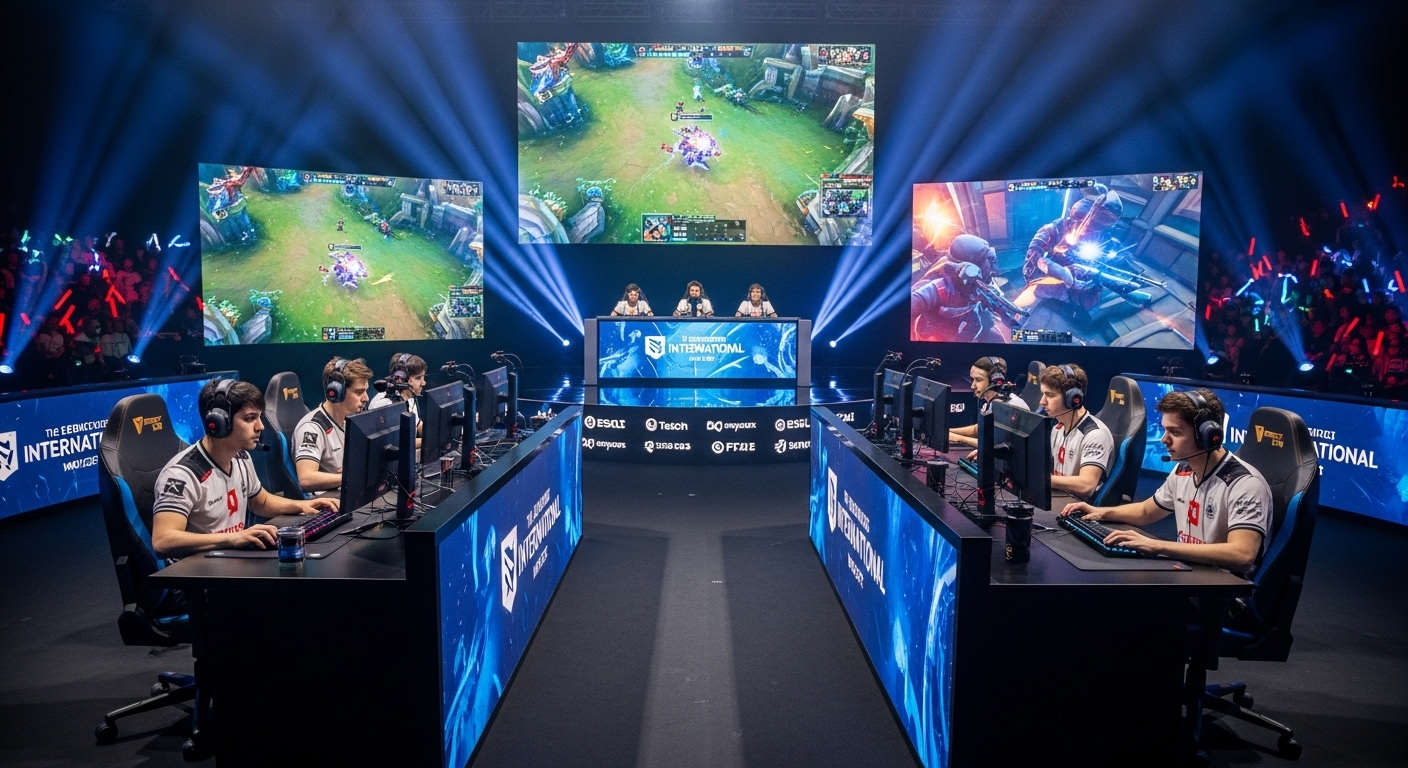Gaming has transformed remarkably over the past few decades. What began as simple pixelated experiences has evolved into complex, immersive worlds that captivate millions worldwide. The gaming industry is no longer a niche hobby; it has become a cultural phenomenon, influencing entertainment, technology, and social interactions. This blog will explore the history, evolution, genres, technological advancements, and societal impact of gaming, providing a complete picture of the industry as it stands today.
The Humble Beginnings of Gaming
The journey of gaming began in the early 1970s with basic electronic games. Titles like Pong, released in 1972, were simplistic in mechanics but revolutionary for their time. Pong, with its two-dimensional paddle-and-ball gameplay, laid the foundation for interactive entertainment. Around the same period, arcade games began gaining popularity, bringing the first taste of competitive gaming to the public.
Early gaming was characterized by simplicity and accessibility. Developers focused on creating games that could entertain with minimal graphics and sound. Despite these limitations, these early games captured the imagination of players, proving that gaming was more than just a passing fad.
The Rise of Home Consoles
The late 1970s and early 1980s marked the rise of home gaming consoles, bringing the arcade experience into living rooms. Systems like the Atari 2600 revolutionized gaming by allowing players to enjoy multiple titles on a single console. The concept of interchangeable cartridges made gaming diverse, and the home console became a centerpiece of entertainment for families.
During this period, iconic franchises began emerging. Titles such as Pac-Man, Space Invaders, and Donkey Kong set the stage for gaming as a storytelling medium. Developers realized that games could have memorable characters, unique worlds, and immersive experiences that extended beyond simple score-based objectives.
The Golden Age of Gaming
The 1980s and 1990s are often referred to as the golden age of gaming. This era saw the rise of legendary consoles like the Nintendo Entertainment System (NES) and Sega Genesis. Games became more sophisticated, offering complex narratives, intricate level designs, and unforgettable music.
Nintendo, in particular, changed the gaming landscape with franchises like Super Mario Bros., The Legend of Zelda, and Metroid. These titles were not only entertaining but also innovative, introducing new mechanics and storytelling techniques. Similarly, Sega brought its share of excitement with Sonic the Hedgehog, a character who became a cultural icon and rivaled Mario in popularity.
During this era, gaming also began to appeal to a broader audience. The introduction of role-playing games (RPGs) and adventure games allowed players to experience deep narratives and emotional engagement. This period laid the groundwork for modern gaming genres and inspired future developers to push creative boundaries.
The Era of 3D Gaming
The mid-1990s brought a revolutionary change: the transition from 2D to 3D graphics. The PlayStation, Nintendo 64, and Sega Saturn introduced gamers to three-dimensional worlds, forever altering gameplay mechanics. Titles like Super Mario 64 and The Legend of Zelda: Ocarina of Time demonstrated the potential of 3D gaming, offering expansive worlds and unprecedented freedom of movement.
This shift also gave rise to genres like first-person shooters (FPS) and 3D platformers. Games like Doom, Quake, and GoldenEye 007 redefined action gaming, emphasizing precision, strategy, and immersive experiences. The technological leap was not just visual; AI, physics engines, and sound design evolved, making games increasingly realistic and engaging.
Online Gaming and Multiplayer Revolution
The late 1990s and early 2000s marked another pivotal shift: the rise of online gaming. With the proliferation of the internet, multiplayer gaming became a global phenomenon. Titles like Counter-Strike, World of Warcraft, and EverQuest connected players across continents, creating vibrant communities and competitive scenes.
Online gaming introduced new dynamics to the industry. Social interaction became integral to gaming experiences, with players forming friendships, guilds, and rivalries. Competitive gaming also emerged, laying the foundation for esports, which would later become a billion-dollar industry.
Gaming Genres: Diversity and Innovation
The beauty of modern gaming lies in its diversity. Over the decades, countless genres have emerged, catering to every taste and preference.
Action and Adventure: These games focus on combat, exploration, and storytelling. Titles like Uncharted, Assassin’s Creed, and The Last of Us blend cinematic storytelling with interactive gameplay.
Role-Playing Games (RPGs): RPGs allow players to step into the shoes of a character, making choices that shape the story. Series like Final Fantasy, Skyrim, and The Witcher offer expansive worlds, rich lore, and intricate gameplay mechanics.
Simulation and Strategy: From city-building games like SimCity to life simulations like The Sims, these genres emphasize creativity, planning, and problem-solving. Strategy games, such as StarCraft and Civilization, challenge players to think critically and manage resources efficiently.
Sports and Racing: Sports games, including FIFA, NBA 2K, and Madden NFL, simulate real-world athletics, while racing games like Gran Turismo and Forza Horizon deliver adrenaline-pumping experiences.
Horror and Survival: Horror games such as Resident Evil and Silent Hill use suspense, fear, and storytelling to create tense, unforgettable experiences. Survival games like Minecraft and ARK: Survival Evolved emphasize exploration, resource management, and creativity.
Technological Advancements in Gaming
Gaming technology has evolved at a staggering pace. From humble beginnings, modern games boast photorealistic graphics, advanced AI, and immersive sound design.
Graphics and Visuals: With the advent of powerful GPUs and rendering techniques, games now resemble interactive movies. Ray tracing, realistic lighting, and high-resolution textures enhance immersion.
Virtual Reality (VR) and Augmented Reality (AR): VR and AR have introduced new ways to experience games. VR headsets like the Oculus Quest and PlayStation VR immerse players in fully interactive environments, while AR games like Pokémon Go blend gaming with the real world.
Cloud Gaming and Accessibility: Cloud gaming services, such as Xbox Cloud Gaming and NVIDIA GeForce Now, allow players to stream games without high-end hardware. This democratizes gaming, making it accessible to a wider audience.
AI and Procedural Generation: AI-driven NPCs and procedural world generation have enhanced realism and replayability. Games like No Man’s Sky showcase virtually limitless exploration opportunities thanks to these technologies.
Gaming as a Cultural Phenomenon
Gaming has transcended mere entertainment; it has become a cultural force. Popular franchises inspire movies, TV shows, books, and merchandise. Characters like Mario, Master Chief, and Lara Croft are recognized worldwide, influencing pop culture and fashion.
Esports has also propelled gaming into the mainstream. Professional gamers compete in tournaments with massive prize pools, drawing millions of viewers online. Games like League of Legends, Dota 2, and Call of Duty have established esports as a legitimate and highly lucrative career path.
Streaming platforms like Twitch and YouTube Gaming further amplify gaming culture, allowing players to share experiences, strategies, and personalities with a global audience. Content creators have become influential figures, shaping trends and communities within the gaming world.
The Social Impact of Gaming
Gaming also has profound social implications. Online multiplayer games foster teamwork, communication, and problem-solving skills. Many games encourage collaboration, with players forming lasting friendships across geographical boundaries.
Furthermore, gaming has become a tool for education and cognitive development. Strategy games improve critical thinking, puzzle-solving, and resource management skills. Story-driven games enhance creativity and empathy, allowing players to explore perspectives and narratives they might not encounter otherwise.
However, gaming is not without challenges. Addiction, toxicity in online communities, and the potential for excessive screen time are concerns that need addressing. Responsible gaming practices, parental guidance, and community moderation are essential to ensuring a healthy gaming culture.
The Future of Gaming
The future of gaming promises even greater immersion and innovation. Advances in artificial intelligence, cloud computing, and virtual reality will continue to push the boundaries of what games can offer.
We can expect more realistic simulations, dynamic storytelling, and interactive environments that respond to player choices in unprecedented ways. Cross-platform gaming, cloud-based multiplayer worlds, and AI-driven personalized experiences will redefine the way we interact with games.
Moreover, gaming will continue to integrate with other forms of media, creating transmedia experiences that blur the line between movies, games, and interactive storytelling. The potential for creativity and innovation in gaming is limitless, promising exciting developments for both developers and players.
Conclusion
Gaming has come a long way from its pixelated origins to the immersive, diverse, and technologically advanced experiences we enjoy today. It is an art form, a cultural phenomenon, and a social platform that continues to evolve at an unprecedented pace. From the early days of Pong to the immersive worlds of VR, gaming has reshaped entertainment and human interaction.
As technology progresses and creativity knows no bounds, the future of gaming looks brighter than ever. It will continue to inspire, challenge, and entertain generations, proving that gaming is not just a pastime—it is a fundamental part of modern culture.
Whether you are a casual player exploring a new title, a competitive gamer climbing esports ranks, or a developer pushing the boundaries of interactive storytelling, gaming offers something for everyone. It is a universe waiting to be explored, a canvas for imagination, and a testament to human creativity.



